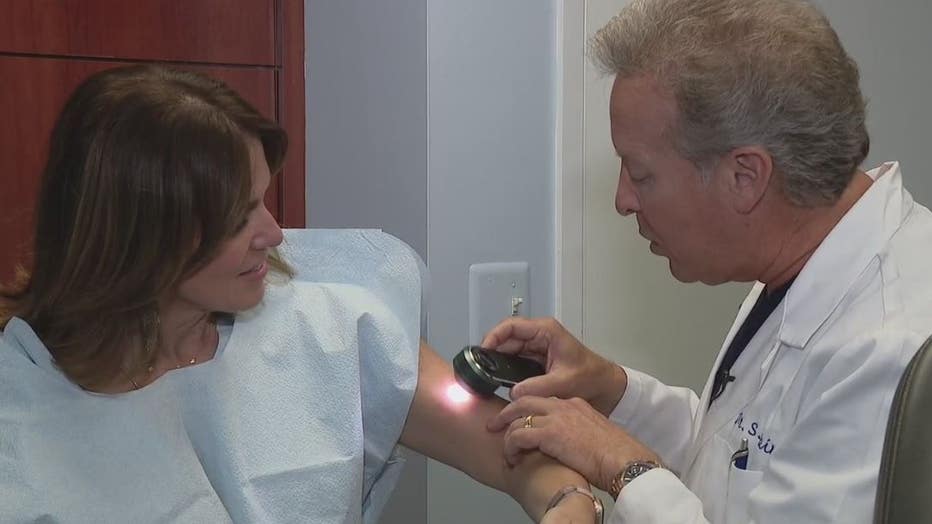Melanoma Monday: Your skin tells a story of sun damage; full body exams should be yearly

Melanoma Monday: Your skin tells a story of sun damage, early detection is key
Those carefree moments in the sun eventually leaves a permanent trail of clues - there are moles, or are they freckles, or are they just brown spots? And the biggest question is, are they cancerous?
FOX 2 (WJBK) - There's not one size fits all advice for skin cancer screenings. If you have any of those risk factors you should consider a full body exam once a year. But all of us should be paying attention to our skin. Look everywhere you can, even in between your toes even for any unusual changes.
Deena: "There's a new spot - do you see it?"
Dr. Steven Grekin: "Yeah I do."
Like a detective searching for microscopic evidence, Dermatologist Steve Grekin studies my skin, which tells a story decades in the making.
"This is nothing you're doing yesterday, or the day before," he said. "this is from over the years. These are totally normal, albeit they are telling you that you've had quite a lot of sun."
Those carefree moments in the sun eventually leave a permanent trail of clues - there are moles, or are they freckles, or are they just brown spots? And the biggest question is, are they cancerous?
"Any moles that grow in adulthood, need to be examined," Grekin said,
Grekin is using a device called a Dermatoscope which uses light and magnification that can detect all skin cancers, but he's really focused on the deadliest one of all - melanoma.
It's the skin cancer that can spread to other organs. He's searching for irregularities in pigment and borders.
"I look for dots and globules, those are nests of pigment cells," he said. "The pigment is supposed to be universal or uniform. When we look in the Dermatoscope, and when we see nests, dots or globules, that's also bad."
According to the American Cancer Society, melanoma is only about 1 percent of skin cancers, but it causes most of skin cancer-related deaths.
About 8,000 people are expected to die of melanoma this year. Risk factors include UV light exposure from sun or tanning beds, having many moles, fair skin or family history.
"It's being detected more, it is being detected earlier, mortality is going down, but incidents are going down," Grekin said. "Early detection saves lives in all cancers, most specifically in melanoma."
If you are thinking that you already have a lot of skin damage from way back when why should I protect my skin now - it is a cumulative effect. That means the more sun damage you get, the higher your risk - so be safe.


